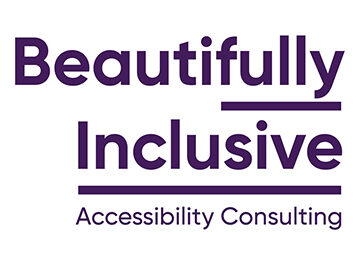Questions commonly asked about Tourette syndrome, premonitory urges, and suppression of tics.
Q: Do you know you are going to tic?
A: The answer to that is sometimes, for some people.
Some people with TS (but not all) can have a premonitory urge, some of the time, before they tic. I am aware of my tics about 60% of the time, the other 40% of the time I am unaware… this often happens when my brain is engaged or if I am at home. I notice them a LOT MORE at work, in public, etc. The reason for this is because when I am at home, I am safe and do not need to focus on suppression, so my brain gets a break and I am oblivious unless my tic is painful. In public, I am hyper aware of my tics and notice a LOT MORE when I get the premonitory urge, and then I work to suppress the tic (sometimes with success, and sometimes not).
Q: What does a premonitory urge feel like?
A: This is also different for everyone but the most common ways to describe it are:
It feels like when you need to cough, sneeze, or yawn. Some describe it as a swell of emotion or feeling akin to anxiety. Some describe it as pressure in their head. Others say it is like an itch they need to scratch, or something they need to do to feel better/exactly right. No matter what the description is, it is still something we cannot really control. So, if someone says they need to do the thing to get a certain feeling, its not REALLY a choice they are making… but it can get confusing to those who do not experience it.
Q: Can you just stop that?
A: No, we really cannot just stop that… whatever the tic is that is annoying you? Believe me, it is most likely annoying us more because we cannot stop it, its annoying, it hurts, its causing embarrassment, etc. The thing with TS is, it is a neurological disorder that fires messages out to our bodies, telling us to do things automatically… I think of them as brain misfires. Asking us to stop that thing we are doing is not only insensitive, hurtful, and insulting, but it is also discriminatory.
Q: I heard you can suppress it when you want to, you are just attention seeking!
A: Sometimes it is possible to suppress a tic (SOMETIMES!). It’s a bit like a cough. Have you ever been somewhere that you just should not cough? A presentation? A wedding in the middle of vows? A job interview? At 2 am when the entire house is asleep? When you are hiding under the bed from someone who broke into your house? (ok that’s a bit far, but you get the idea, right?).
You might be able to ignore the tickle, breathe more shallowly to try and get it to pass, but 99% of the time, its short lived and then you must cough! Why? Because your body tells you to do it… it says hey! There is something blocking your airway, or tickling the throat, lets expel it! In the meantime – while you are trying NOT to cough (to suppress it) all you can think about is NOT COUGHING. Every breath you take, you think about it… you work to control it. Now imagine doing that for say 8 hours a day at school, or work? Imagine HOW EXHAUSTING that is?
Another fun thing with suppression, for those who can do so for small periods of time, is that it often ends in a “tic fit”. A tic fit is essentially when your brain makes up for the suppression overload and then those tics that you had been suppressing come out twice as bad (so instead of one tic, you might tic for an hour and much harder than you would have, for example). What that means is tic suppression takes a large toll on someone with TS. We spend a LOT of time suppressing to fit into society. SO, if we tic near you, please just ignore it. (I always have epic tic fits when I leave the office.)
I hope this helps explain some of the oddities of suppression and premonitory urges, if not please feel free to ask me questions. The key take away is no, we cannot just stop it… and its not nice to make us feel bad about it.
Thanks for reading!
